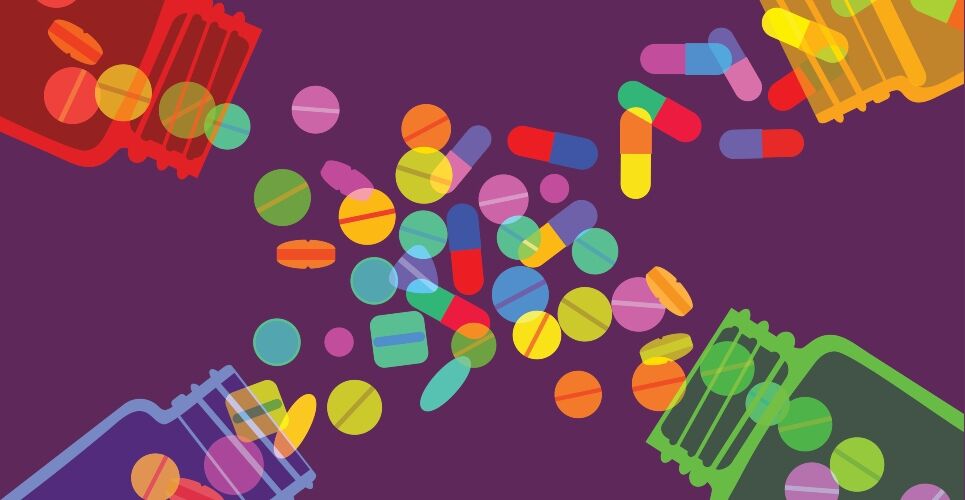Professor Alain Astier discusses how the tradition of manufacturing drugs in hospitals and hospital pharmacies is taking on new directions in light of increasing medicine shortages, enhanced professional responsibilities for pharmacists and the shift towards delivering personalised medicine.
‘Making drugs is old-fashioned! Leave that to the manufacturers.’
How many pharmacists, especially those in hospitals, have heard this before?
But let’s not forget that preparing medications is traditionally anchored in pharmacy practice and could represent a useful solution to address therapeutic unmet needs and public health concerns resulting from shortages of suitable pharmaceutical formulations or essential medicines.
Indeed, essential medicine shortages are increasing exponentially, and new regulations to prevent shortages are becoming priorities for many countries.
The Covid-19 pandemic highlighted the scarcity of some major medicines – particularly surgical and resuscitation products – and the lethal consequences. In certain countries, including France, hospital pharmacies stepped in to produce needed medicines locally so that many patients could be saved.
In the last two years, the failure to obtain enough paediatric amoxicillin formulations has led the health authorities in France to ask some specialised community pharmacies if they could compensate.
Several millions of amoxicillin capsules have been produced, and the laboratory analyses carried out both on hospital preparations and those from community pharmacies have demonstrated perfect quality.
Tackling shortages with in-hospital manufacturing
French law now authorises hospital pharmacies to produce ‘special preparations…when there is no suitable or available pharmaceutical speciality, particularly during a supply shortage or health crisis.’
But, preparing drugs to substitute deficiencies in private industries remains an additional challenge for many hospital pharmacists, and it will certainly depend on the local regulatory approval.
Another potential solution is to create non-profit drug companies that are established by hospitals or philanthropic organisations.
The notion of non-profit drug companies was initially pushed almost two decades ago for resource-poor nations, and mainly for medicines for endemic diseases. However, this idea has been revisited, even in developed countries, with the exponential increase of shortages.
For example, to combat shortages and skyrocketing prices, the non-profit pharmaceutical company Civica Rx, which was founded in 2018 by a large group of US hospitals, funded a new state-of-the-art manufacturing facility in the state of Virginia to produce essential injectable generics, including biosimilar insulins, for an affordable cost. The company uses the expertise of hospital pharmacists and physicians to help prioritise what medications it needs to provide to support market stability.
New responsibilities, new arenas
The potential for in-hospital manufacturing is further developing due to the new responsibilities assigned to hospital pharmacy staff, such as centralised preparation of chemotherapies and drugs for clinical trials, extemporaneous production of radiopharmaceuticals and cellular therapies, to name but a few.
The role of pharmacists in the production and handling of advanced therapy medicinal products (ATMPs), especially those for individualised use, can vary from country to country. Still, as these products are always considered to be drugs, the role of pharmacy is crucial.
Multiple examples of the production of cellular drugs performed under good manufacturing practice (GMP)-compliant conditions at a hospital level have been published in the literature.
A pioneering paper from the Erasmus MC Cancer Institute demonstrated how hospital pharmacy was involved in the manufacturing and handling of dendritic cell (DC) ‘vaccines’ in malignant mesothelioma.
And a recent study by van ‘t Land et al investigated the use of DC-based immunotherapy in resected pancreatic cancer. Autologous monocyte-derived DCs led to two-year recurrence-free survival in the open-label, combined phase1/2 trial.
Further benefits of in-hospital drug manufacturing
Besides DCs, other therapies that use cells from an individual patient, such as anticancer vaccines, personalised mRNA vaccines or CAR T-cell therapies, fully justify production in the hospital.
Outsourcing production – which often involves sending cells overseas for genetic manipulation by a pharmaceutical company – might not make great financial sense, especially considering the scientific basis of this process was mainly developed at an academic level.
The European Medicines Agency’s priority medicines (PRIME) designation of a CAR T-cell treatment from a Spanish academic research centre (EMA/PRIME/21/046) highlights the case for manufacturing ATMPs outside of the standard centralised marketing authorisation pathway in the EU, as authorised by the Hospital Exemption Clause (the MTI-PP in France).
Embracing competencies and skills
The in-hospital production of medicines holds the potential to address problems associated with shortages, costs and accessibility.
However, local manufacturing requires solid competencies and skills, suitable equipment and rigorous quality control and assurance to comply with GMPs. Local manufacturing can and should be encouraged in hospital pharmacies or biotechnology departments, depending on the nature of the products. Whatever the location, pharmaceutical competencies are strongly required in all cases.
Author
Alain Astier PharmD PhD
Honorary head of the Department of Pharmacy, Henri Mondor University Hospital, and French Academy of Pharmacy, Paris, France

